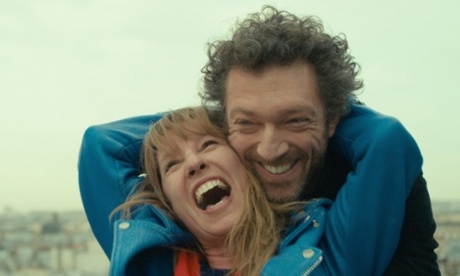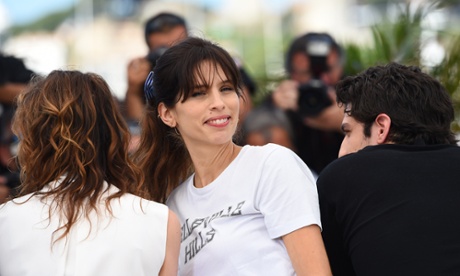
Mon Roi, directed and co-written by Maïwenn (that is, film-maker and actor Maïwenn Le Besco) is an unendurable confection of complacent and self-admiring nonsense: shallow, narcissistic, histrionic and fake. This director’s Polisse — about a division of the Juvenile Protection Squad in Paris — was presented in Cannes a few years ago; it was a film widely admired and despite its group-improv spasms of over-acting and a somewhat preening cameo from the director herself, it certainly had qualities. But Mon Roi defeated me: it is an outrageous 130-minute firework display of drama-queen over-acting and bad acting: impossibly irritating and self-indulgent, featuring people who are clearly on some important level supposed to be irrepressible, adorable and richly life-affirming — but are actually tiresome prats. When you’ve got a movie featuring that egregious smoulderer Louis Garrel, and he turns out to be the relatively calm, non-annoying one … well, it’s a bad sign.
Emmanuelle Bercot (who directed the decent and heartfelt social-realist drama Standing Tall that was this year’s Opening Gala) acts in the film playing Tony, who is supposedly a lawyer — although Maïwenn’s conception of a lawyer’s exact duties seems airily vague. The movie is seen in flashback, as Tony recovers in rehab with a broken leg from a ski-ing accident, and reflects on a passionate, destructive relationship with the father of her child. In a club one night, she sees Georgio, played by Vincent Cassel and they hit it off. Georgio appears to be a very rich restaurateur with a flash apartment and a super-cool circle of friends from the world of fashion. They get married and she gets pregnant, but Tony’s brother (Louis Garrel) is suspicious of him and only afterwards does Tony discover that Georgio has serious commitment issues, drug problems and personal debts, for which she, as legal spouse, is partly liable.

But oh, what a dynamic force of nature this impossible, fascinating, glorious alpha male is! Always making Tony and the general roistering crew laugh uproariously in public places with his chaotic bohemian behaviour! In one horrific scene in a restaurant, Georgio impulsively grabs wine and plates of food and pretends to be a waiter, “serving” Tony and other diners. They all smile indulgently, as opposed to slapping him with a seabass. Maïwenn is always convening circle-jerk group scenes of this sort: characters incessantly drinking and laughing together. Even Tony’s rehab scenes feature her doing exactly the same sort of thing with her new broken-legged mates. But the flip-side of all this is temper-loss and purple-faced yelling which is just as boring and dramatically valueless. The moment in which Tony stands in the rain and screams with solo anger is wince-makingly embarrassing.
The audience is entitled to wonder if this is a personal, even autobiographical film which Maïwenn conceived in a period of enforced inactivity, say, after breaking her leg, ski-ing — and if it was a therapeutic process. Maybe, maybe not. But it isn’t therapeutic for the audience.







